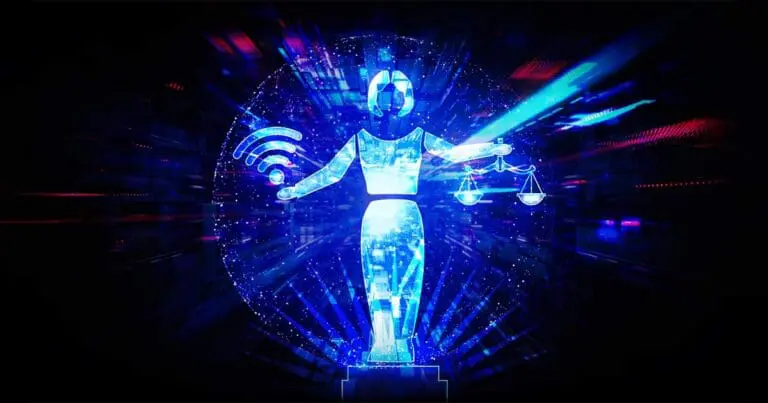Tech Consolidation: The Future of AI and Job Market Dynamics

The rapid expansion of AI technologies is poised to redefine job roles and market demands significantly.
This unprecedented transformation necessitates a proactive approach in workforce re-skilling and education to align with the evolving tech landscape.
As organizations seek to consolidate their tech infrastructure and processes, a shift in skill set requirements is inevitable.
What is tech consolidation?
Tech consolidation refers to the process of streamlining technology systems and applications within an organization. It involves identifying redundant technologies and consolidating them into more efficient and integrated systems.
This practice has gained traction in recent years as companies aim to optimize their operations.
Historically, tech consolidation emerged as a strategic response to the dot-com bubble burst in the early 2000s, when companies were compelled to reassess and streamline their technological assets for better efficiency and cost management.
Noteworthy examples of significant tech consolidations in recent years include the acquisition of LinkedIn by Microsoft in 2016, and IBM’s purchase of Red Hat in 2019, both aimed at enhancing their cloud services and business software solutions.
The role of AI in tech consolidation
The role of AI in tech consolidation involves tech consolidation acceleration, enhanced product and service offerings, accelerated innovation cycles, and efficiency and scalability.
Tech consolidation acceleration
AI technologies facilitate the acceleration of tech consolidation by automating the process of identifying overlaps and redundancies in technological assets.
Through advanced analytics and machine learning, AI systems can pinpoint areas where integration and optimization can yield significant cost savings and efficiency improvements.
This capability enables organizations to streamline their tech infrastructure more rapidly and with greater precision, propelling the consolidation process forward at an unprecedented pace.
Enhanced product and service offerings
AI’s capacity to refine and innovate product and service offerings significantly increases a company’s attractiveness as an acquisition target.
By leveraging AI to personalize user experiences and optimize operational efficiency, businesses can demonstrate a clear competitive edge.
This technological prowess not only makes them more appealing to larger conglomerates seeking to enhance their own portfolio but also showcases the potential for seamless integration and future growth.
Accelerated innovation cycles
In a trend reflective of the tech industry’s fast-evolving landscape, larger tech entities are increasingly acquiring AI startups to swiftly bolster their AI capabilities.
This strategy allows them to integrate cutting-edge technology and talent without the time and resource investment required for in-house development.
Consequently, these acquisitions not only expand the technological repertoire of acquiring firms but also significantly accelerate their innovation cycles in the AI domain.
Efficiency and scalability
AI-driven automation plays a crucial role in enhancing the efficiency and scalability of tech firms, allowing them to dominate and consolidate the industry.
By automating routine tasks and optimizing processes, companies can focus on innovation and growth, expanding their market presence.
This shift not only positions these firms as industry leaders but also sets the stage for further consolidation as they leverage AI to streamline operations and reduce costs.
Tech consolidation’s impact on the job market
Tech consolidations impact on the job market means redefining job roles, potential job losses, emerging skill set requirements, and new niches.
Redefining job roles due to tech consolidation
Tech consolidation will likely redefine the scope and nature of many job roles, creating opportunities for reskilling and upskilling.
As companies move towards integrated systems, there will be an increased demand for individuals with both tech and business acumen to oversee the efficient operation of these consolidated systems.
Potential job losses due to tech consolidation
While tech consolidation may create new job opportunities, it may also result in job losses as certain roles become redundant due to automation and integration.
This shift highlights the need for individuals to stay updated with emerging tech trends and continuously enhance their skills to remain relevant in the job market.
Emerging skill set requirements as a result of tech consolidation
As AI technologies continue to drive tech consolidation, new skill sets will be in demand, such as AI development, data analytics, and machine learning.
Individuals looking to enter or advance in the tech industry must be proactive in acquiring these skills to stay competitive in the job market.
New niches as a result of tech consolidation
Innovation and entrepreneurship play a pivotal role in creating new niches and companies within a consolidating tech landscape, breathing fresh life and diversity into the industry.
These forces drive the development of unique solutions and services, countering the trend towards uniformity and fostering a vibrant ecosystem of competitive, agile startups.
Preparing for the future of tech consolidation
Preparing for the future of tech consolidation means staying relevant, adapting to tech consolidation, and preparing for the future job market.
Staying relevant in the midst of tech consolidation
Professionals aiming to remain relevant in the rapidly consolidating tech industry should prioritize continuous learning, especially in areas like artificial intelligence, machine learning, and data science.
Networking within the industry and staying abreast of the latest tech trends through professional journals and conferences can also provide valuable insights and opportunities.
Adapting to tech consolidation
Companies can adapt to the consolidating tech landscape by fostering a culture of innovation, encouraging employees to experiment with new ideas and technologies.
Additionally, they can support employee growth by providing ongoing educational opportunities and resources to learn about emerging technologies and industry trends.
Preparing for the future job market
Education systems and government policies play a critical role in equipping the workforce for the evolving job market, emphasizing the importance of adaptability and lifelong learning.
By integrating technology, critical thinking, and digital literacy into curriculums, and by creating policies that encourage continuous skill development, they lay a foundation for individuals to thrive amidst the challenges posed by tech consolidation.
Navigating tech consolidation
Tech consolidation, driven largely by advances in Artificial Intelligence (AI), is fundamentally reshaping the technology industry and the job market.
AI’s role in streamlining operations, enhancing product and service offerings, and accelerating innovation cycles has made it a pivotal force in this transformation.
Despite potential challenges, such as job displacement and the need for skillset shifts, consolidation also presents opportunities for growth, innovation, and the emergence of new job roles.
Navigating this changing landscape requires a focus on adaptability, continuous learning, and an openness to evolving technologies.
Looking to hire top-tier Tech, Digital Marketing, or Creative Talent? We can help.
Every year, Mondo helps to fill over 2,000 open positions nationwide.
More articles about top industry salaries and trends:
- The Evolution of Hybrid Work and Its Impact on Hiring Trends
- The Tech Layoff Boom: Shifts and Opportunities
- Quantum Computing Explained: Preparing for the Jobs of Tomorrow
- Embracing the Future: The Rise of Big Data-Powered Virtual Assistants
- Can AI Help You Find Love? The Role of Artificial Intelligence in Romance
- How To Future-Proof Your Business Through Skills-Based Hiring
- Redefining Economic Health and Progress: Implications for Staffing in 2024
- Beyond the Hype: The Current State of Generative AI and its Hurdles
- Tips to Leverage Your Onboarding Process for Employee Retention
- 15 Remote Tech Jobs With the Highest Salaries
- Pay Transparency: What States Have It & Why It’s Important
- Highest Paid Social Media Jobs & Top Salaries
- 10 Tech Jobs That Saw the Highest Salary Growth This Year
- Highest Paid Data Science Roles & Top Salaries



